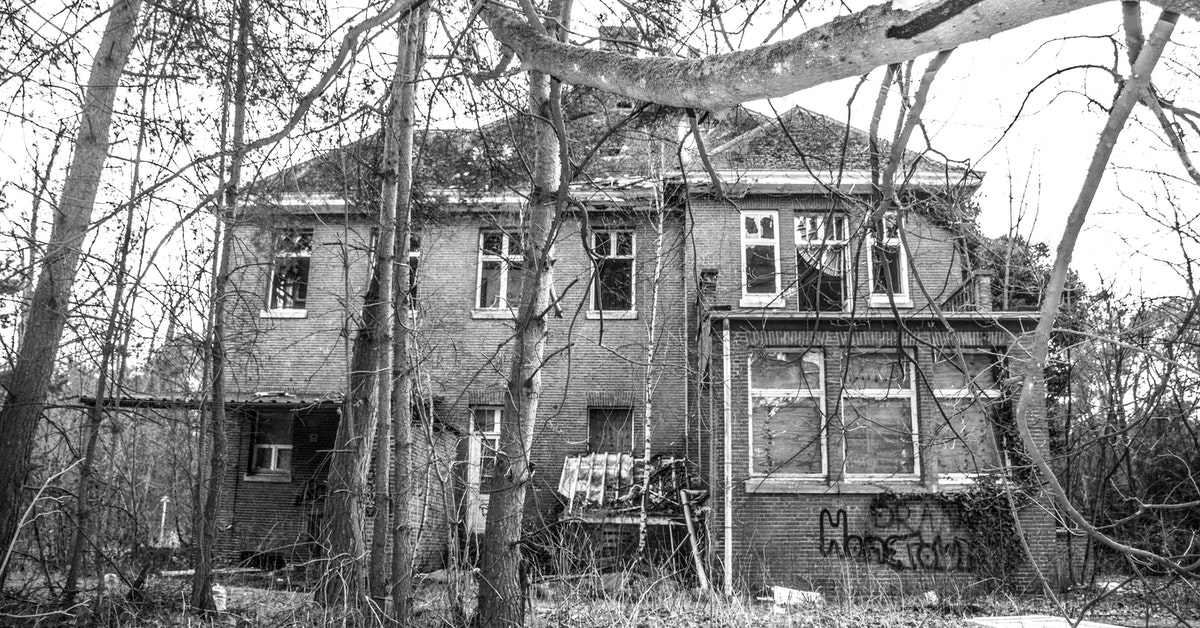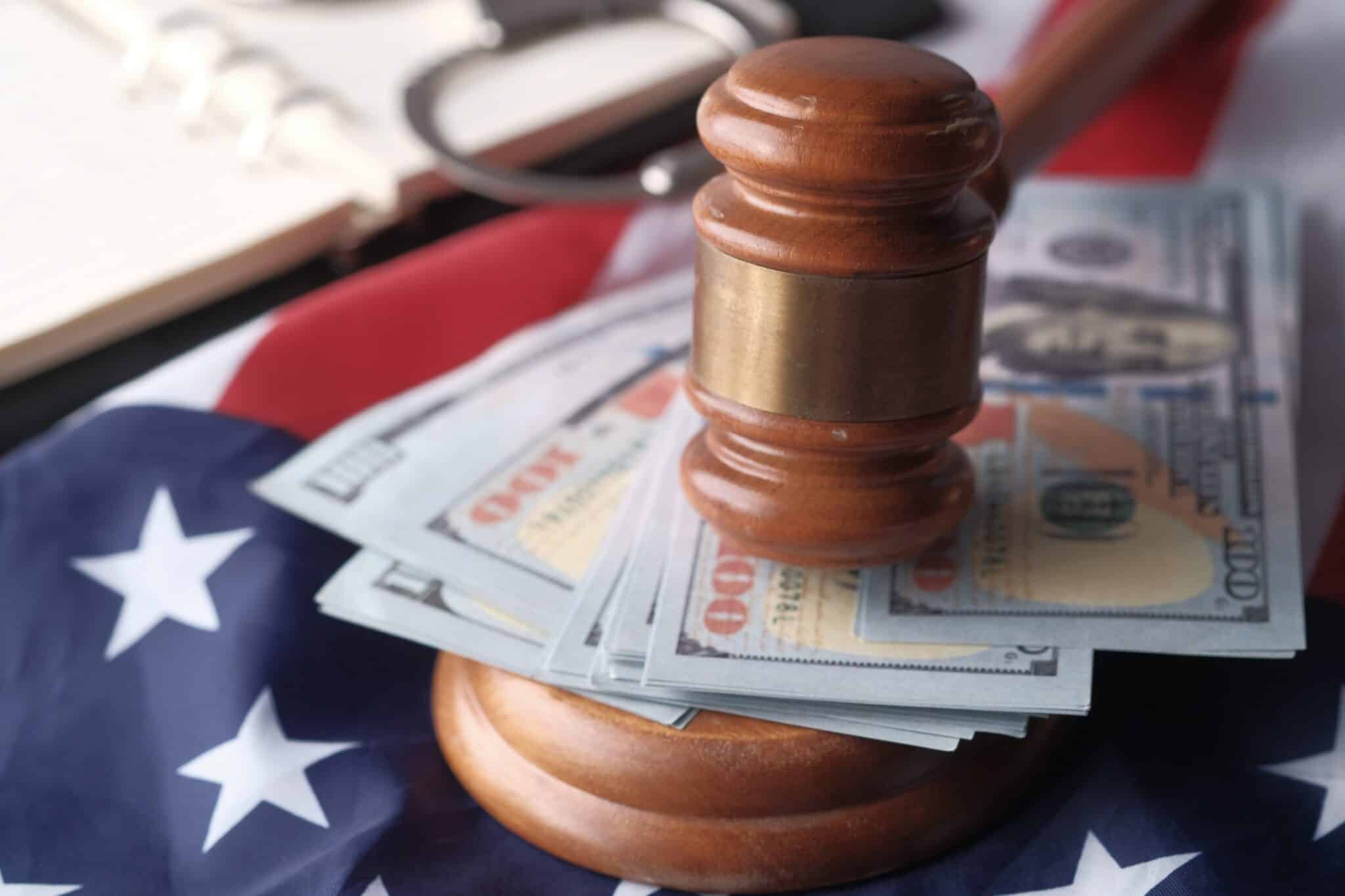When we think about a homeowner losing their property, the first thing that comes to mind is foreclosure due to falling behind on the mortgage. While buying a foreclosed property is one way to potentially get a good deal on a property, another way is buying property for back taxes.
When an individual or business fails to pay their property taxes, a tax lien is issued by the county tax collector in order to recoup the revenue they lost. Investors then have the opportunity to purchase the debt and earn interest from the homeowner.
However, if the owner doesn’t pay their taxes for a number of years, the property can be put up for sale in a public auction by the tax collector. The proceeds from the sale will go towards repaying the tax-lien holders.
If you decide to buy property for back taxes, you’ll want to do a lot of research to make sure you’re making a smart investment. Let’s take a look at what you should know about purchasing property with delinquent taxes.
Back taxes are taxes that haven’t been fully paid during the year that they were due. These taxes might be fully unpaid or only partially unpaid. An individual can have back taxes at any level of government, and these unpaid taxes accumulate penalties and interest.

There can be serious penalties to back taxes that remain unpaid. The individual could face wage garnishment, tax liens, or prison time.
When it comes to a homeowner being delinquent on their property taxes, the individual risks losing their property.
When an individual or an entity owns a property, they owe property tax to the government. These taxes are based on the assessed value of the property, meaning they are a type of “ad valorem” tax.

In the United States, property taxes are most commonly levied by local municipalities and state governments in order to fund community amenities, school districts, and other local projects and expenses.
The percentage of the value of a property that homeowners must pay in the form of property taxes can vary widely between states, and even between local areas within the same state.
The five states with the highest property tax rates in the U.S. are:
The five states with the lowest property tax rates in the U.S. are:
In general, you can find the highest property taxes in the Northeast and the Midwest. On the other hand, some of the lowest property taxes in the U.S. can be found in the South and parts of Appalachia.
A tax lien occurs when an individual or business doesn’t pay the taxes that they owe and is a legal claim against the property. For instance, if a homeowner doesn’t pay their property taxes, the county or city that they live in can place a lien on the property for the unpaid taxes.

When a property has a lien attached to it, it can’t be refinanced or sold until the owner becomes current on their back taxes and the lien is removed from the property.
A tax lien certificate is created when a lien is issued. This is created by the municipality and reflects how much is owed in taxes in addition to any penalties or interest attached to the debt.
These tax lien certificates are then auctioned off to the investor that is willing to pay the most for it. For small properties in some areas, an investor might be able to buy tax liens for only a few hundred dollars. In most instances, though, buying tax liens is quite a bit more expensive than that.
Once investors purchase these tax liens from the municipality, they become the new lien owner. This means that they collect payments on the debt with interest from the owner of the property.
In some instances, the investor might be able to foreclose and obtain the property’s title.
If you’re interested in buying property for back taxes, it’s important to understand the difference between tax deed sales and tax lien certificate sales.

A tax deed is the full transmittal of a property’s title because an owner is delinquent on their taxes. A tax lien, on the other hand, is a legal designation that value or proceeds from a property can be rightfully collected by one party.
The intention to purchase the property comes along with tax deed sales, unlike tax lien certificate sales. In tax lien certificate sale, the investor is only purchasing the tax liability.
In a tax deed sale, the investor inherits the rights to ownership of the specific property. A portion of the funds from the sale will go towards repayment of back taxes, while the rest will go to the individual that sold the property.
In some states, property owners have the opportunity during a redemption period to regain ownership if they are able to pay the taxes they owe. In states that don't allow for a redemption period, however, the buyer obtains rights to the property without the owner having an opportunity to regain ownership.
Property owners in the U.S. must pay property taxes each year as imposed by their county. The average amount that American households pay for property taxes, according to the U.S. Census Bureau, is $2,471 annually.
Of course, American homeowners have many additional expenses on top of property taxes. When their financial situation gets to be a burden beyond what they can handle, sometimes they are unable to make their property tax payments.
When a homeowner is unable to pay their property taxes, they are running the risk of losing their property. The county can sell a tax lien certificate if they don’t pay its property tax bill in order to reimburse the government for the payments it didn’t receive.
Every year, counties will auction off their tax lien certificates to the highest bidder. The people that attend these auctions are almost always investors. Sometimes, the county will factor in the interest that investors will charge the property owner in order to reclaim the debt.
Investors that choose to buy tax lien certificates are responsible for paying off the outstanding property taxes in addition to any other penalties or fees associated with the debt. Then, they work to recuperate the debt from the homeowner with additional interest.
The payment schedule and interest rate restrictions are bounded by guidelines set by the local government.
If the person who owns the property is unable to pay back the property taxes they owe to the investor, the investor then can potentially gain the legal right to acquire the title of the property through a tax sale.
How the process of tax deed sales works depends on the state and municipality. Not all states allow tax deed sales. Those that do, however, require that a government body get a tax deed first.
A tax deed is a legal document that gives the government body (usually the county where the property is located) the right to sell the property in order to recoup the back taxes it’s owed.
Once the tax deed is in the hands of the government agency, they can hold a public auction where the property is for sale.
There is usually a minimum bid set for properties sold at these auctions. The property goes to the highest bidder.
If the amount of money that the bidder pays is more than the amount of taxes that are owed, which is common, the former property owner will receive the excess amount if they request them.
There is usually a time limit for how long owners have to request these funds. How long the limit is depends on the state. For example, owners in Georgia have up to five years to claim excess funds after a tax deed sale, while owners in Texas only have two years to claim the funds.
Are you wondering where you should invest in real estate? Check out the best places to buy rentals in the U.S. here.
Let’s say that the estimated value of a property is $200,000. The owner owes $15,000 in unpaid property taxes. The property is put up for sale in a public auction by the county.
After a bidding war between several interested investors, the property goes to the highest bidder, who offered $75,000.
If the bid is accepted, the county will be paid $75,000 from the investor. They would then take the amount of money owed in back taxes– $15,000, in this case– and pay the remaining $60,000 to the previous owner (if they claim the excess funds.)
This means that the investor purchased a home will an estimated value of $200,000 while only paying $75,000.
However, the investor still has more money to spend. Properties that are sold at tax deed sales will have a cloud on their title, and clearing this cloud is necessary in order to later sell the property. This means that investors will have to pay in order to get a clean title to the property.
This can be done in two ways:
If you are interested in buying a property for back taxes in a place that has redemption periods, it's important to understand what this could mean for your purchase.
Basically, even if you are the one that submits the winning bid at a tax deed sale, you might not actually become the property owner.
In some U.S. states, homeowners whose property is being sold at a tax deed sale can regain ownership of the home if they pay the taxes they owe and any additional fees and penalties within a set period of time.
If you are the winning bid at a tax deed sale in a state with a redemption period and the homeowner pays everything they owe before the period is over, you won't end up being the owner of the property. Of course, you won't lose any money, but you will have spent time and energy on purchasing a property you didn't end up owning.
In some cases, homeowners can regain ownership of the home if they pay their unpaid taxes before your final payment is submitted.
As an example, the state of Florida allows homeowners to pay the property taxes they owe before the final payment is made from a tax deed sale. Final payments are required in Florida by 11 a.m. the day after your winning bid is submitted. If they pay up before your final payment, the sale is made void.
In Florida and other U.S. states that allow tax deed sales, anyone with a legal interest in a property can pay the taxes in order to stop the sale. For example, a mortgage company that extended a loan for the property could pay the taxes in order to halt the sale of the home.
In other states, the redemption period is longer. For instance, North Carolina allows homeowners ten days to pay their taxes after a winning bid is submitted. Other bidders are also allowed to continue to bid the price up during this time.
If the property owners don't pay their taxes and no upset bids are filed after ten days in NC, you can finally hand over the cash and close the sale.
In this section, we’ll discuss the steps you’ll need to go through if you’re interested in obtaining full ownership of a tax-sale property. It’s worth noting, however, that there are different processes for conducting tax sales in counties and states across the country. For this reason, it’s important to become familiar with the local process for tax sales.
The first step you’ll want to take is finding tax deed sales in the locations where you want to invest. These sales are handled differently in counties across the country, and some will hold this type of auction far more often than others.
In some states, there are sites where you can find upcoming tax deed sales for all of the counties in the state in one place. In others, you will need to look for tax deed sales for specific counties.
If you are new to investing in properties with back taxes, it’s a good idea to feel comfortable with the entire process before jumping in.
Beforehand, obtain a list of properties that will be up for sale and go take a look at them. When you’re researching properties, consider how much you would be willing to pay for them and then compare that to how much they actually sell for at auction. Strike up conversations with other people at the auction and ask them questions you have.
It’s worth noting that you usually can’t see inside a property before purchasing it at auction, and you are generally required to pay all cash. Talk to your local county tax collection office to learn more about their specific procedures.
Now that you have a better sense of the lay of the land, you can start researching properties before the next auction occurs. When a property owner hasn’t been paying their property taxes, there’s a good chance that there are additional debts attached to the property.
You’ll want to do your own research or pay a title company to do a title search so you can find out if there are other liens on the property. This is an essential step you shouldn’t skip, as the other liens on the property could mean the difference between a profitable investment or a terrible mistake.
If you don’t find out about other liens on the property until after you purchase it, you could be left in a situation where you lose money on the deal.
This is another point that you’ll want to check with your county about. In most places, though, you have to register before an auction when you’re interested in a property. You’ll want to research what the registration process entails and if there is a deadline for doing so.
One of the reasons we suggest attending an auction before you actually plan on bidding on a property is because it’s a lot different than making a formal offer on a property. You could find yourself in a situation where there are a number of experienced investors that are interested in the same property as you, and it’s all too easy to get caught up in the excitement and end up bidding higher than you intended.
For this reason, it’s essential to have a firm maximum budget in mind when you want to buy a property at auction. Write this number down and keep it nearby during the bidding. If someone else bids higher on the property than you are willing to go, you have to be able to walk away and not exceed your budget.
Finally, it’s time to attend the auction in order to attempt to purchase the property you’ve chosen. You’ll want to research different bidding strategies and come up with one that suits your purposes. Remember, there’s going to be other investors there that want to buy the same property you do.
In most cases, the property will go to the highest bidder. You’ll want to be well versed in the property values in the area, how much money you’ll need to put into it when you fix it up, and how much it will be worth once you’ve rehabbed it.
If you don’t do this research, you’re essentially just buying a lottery ticket. It’s important to not get emotionally attached to houses that you are purchasing as an investment.
If you’re the highest bidder at your auction and you stayed within your budget, congratulations! Now it’s time to fork over the cash.
You usually need to pay with a certified check or cash in order to complete the deal. You’ll want to research which payment options are allowed ahead of time as well as how quickly you’ll need to pay for the property.
In some places, you’re required to pay right away. In others, you have a couple of days to pull the money together and pay up.
Some investors use a hard money loan in order to buy tax sale properties when they have a few days to settle the deal. If immediate payment is required, though, you’ll need to have the cash in hand before you show up at the auction.
The county will transfer the deed of the property to you once you settle the sale. This means you’re now the owner of the property. The deed will be recorded in your name with the county.
Of course, the only reason to go through this process is so you can receive a healthy return on your investment. There are a number of different options you could pursue. Regardless of the route you choose, though, you’ll want to run all of the numbers ahead of time to ensure that the property you’re considering purchasing will be a sound investment.
Let’s look at some of the common ways that investors make money from tax deed sale properties.
Rental properties can be a great source of passive income and also offers a number of tax advantages. Not only can you receive income in the form of monthly rent, but you can also profit if the market value of your home increases over time and you decide to sell.
Of course, owning a rental isn’t all sunshine and roses. Being a landlord can be hard work, and dealing with problem tenants can be a full-on nightmare depending on the situation.
Another way to profit from tax deed sales is to fix the place up quickly and sell it. There are definitely risks involved in this strategy, and it’s important to note that the fix and flip method isn’t nearly as straightforward and easy as they make it seem on TV.
Plenty of people have profited from buying properties cheaply, fixing them up, and reselling them. At the same time, it’s important to fully understand the risks involved, including going over budget, market values decreasing, running into necessary repairs you didn’t anticipate, and the project taking longer than you expected.
If you got a great deal at auction, you might be able to turn around and sell it as-is immediately. Assuming that the home needs quite a bit of work, the person that you sell it to will likely be an investor that wants to fix it up to rent it out or resell it.
If you're interested in buying tax deed sale properties, you've likely also considered purchasing foreclosed homes. Before you head to the auction, check out the risks of buying foreclosed property.
Buying properties at auction is a pretty different ballgame than just buying a house through the traditional venues. While there are opportunities to get a great deal when buying a house at a tax deed sale, there are also some special considerations you'll want to be aware of.
In most cases, you don't get to inspect the property except for maybe driving by before you choose to buy it. You usually can't go inside the property at all until the purchase is final.
This is one of the primary reasons why these properties tend to sell for significantly less than similar homes on the open market. Anyone who is buying them is inherently taking on more of a risk than someone who does a full inspection of a property before purchasing.
The rules about when and how you pay for a property you buy at auction are going to vary by state and municipality. In general, though, you usually have to pay in cash. Some places might give you a few days to pull the money together, but others will require that you pay immediately after winning the auction.
Are you wondering if you should use an LLC to buy your rental properties? Be sure to check out the disadvantages of LLCs for rentals.
When you buy a property that has back taxes, there's a good chance that the homeowners were delinquent on other payments they had agreed to make as well. This means that there could be other liens on the house, whether it's an IRS lien, liens from other loans, a contractor's lien, or something else.
This means that you could end up being the one that is responsible for paying these additional debts once you're the owner. Depending on how much you bought the property for and how high these unpaid debts are, this could mean the difference between an absolute steal and a terrible financial decision.
You can solve this problem by having a professional title search done. These usually only cost a couple of hundred dollars. Of course, the catch is that you'll have to pay for this to be done before you are certain that you will even bid on the property, let alone be the highest bidder.
Buying property for back taxes can be a great investment, but it's important to know what you're doing before you jump in. There are definitely ways that the entire endeavor can be more expensive and complicated than you initially anticipated, so it's essential to do your research and have a solid idea of the types of obstacles and setbacks you could face along the way.
If you're interested in buying properties for back taxes and you've started to research individual properties, our rental property calculators will be a vital tool. No matter how cheap a property seems or how desirable its location, an investment is only worth making if the numbers lean comfortably in your favor.
We encourage you to share this article on Twitter and Facebook. Just click those two links - you'll see why.
It's important to share the news to spread the truth. Most people won't.